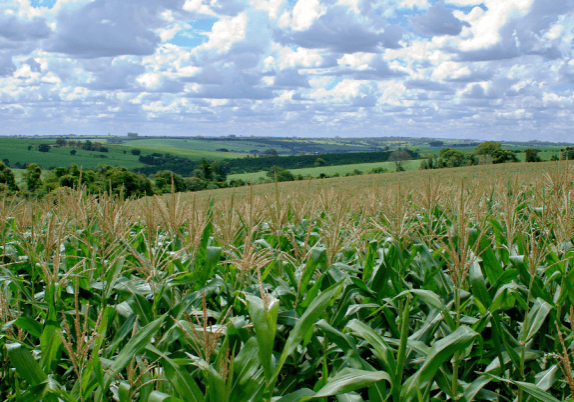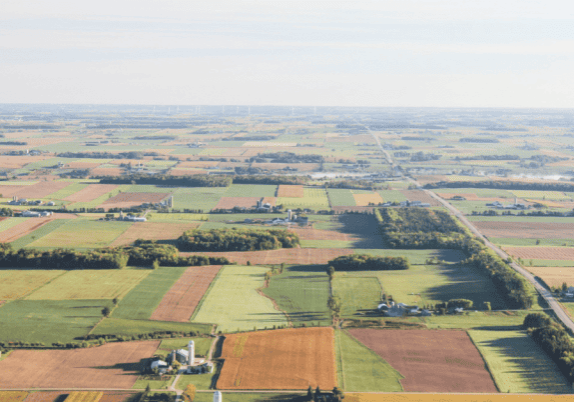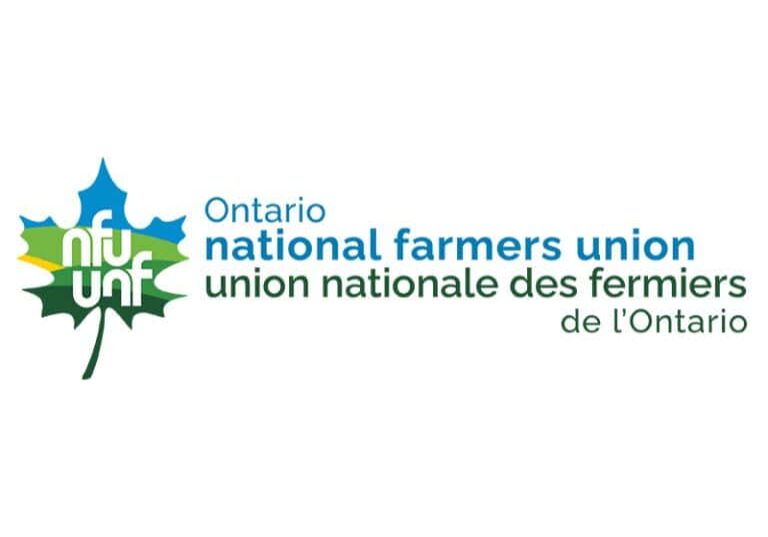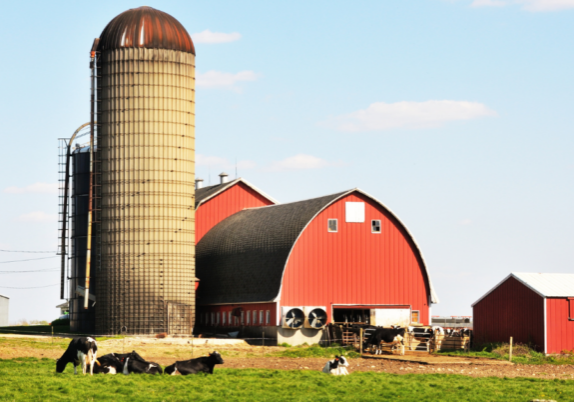“More Sprawl, Built Irresponsibly:” What Bill 23 and Development on Greenbelt-protected Land Will Really Accomplish
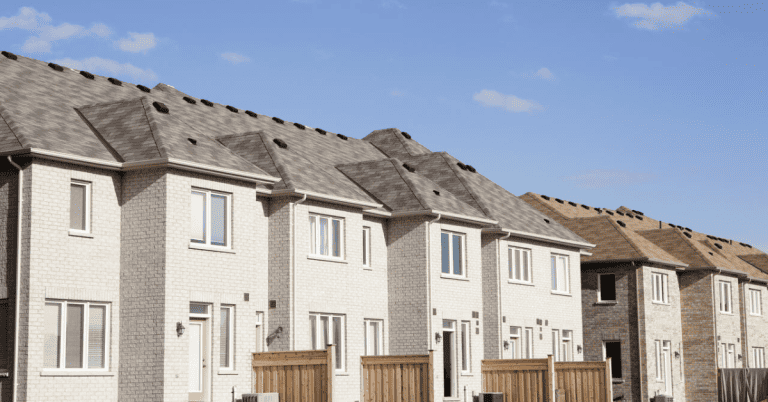
The Provincial Government desperately wants Ontarians to believe that to achieve “More Homes, Built Faster,” Bill 23 is necessary to:
– reduce “red tape” for developers
– overhaul key planning processes, including Growth Plans, the Greenbelt Act, and the Provincial Planning Act
– expand urban boundaries
In addition to Bill 23, the Ontario Government is breaking its promise to respect permanent Greenbelt protections, proposing to remove 7,400 acres of precious farmland and natural areas for development.
The Premier insists these changes are necessary to solve housing supply shortages and the affordability crisis.
He is being disingenuous. He’s also wrong.
Imagine an Ontario where farmers and citizens have no recourse against developments that pose health risks on their land. Where municipalities are barred from ensuring there is enough affordable housing to meet local needs. Where farmers can’t grow food on land near the cities they feed. Where climate change and its extreme weather effects are grossly exacerbated by the loss of protective green space and wetlands. That is what Bill 23 will really accomplish. The Ford government doesn’t want us to realize it, but Bill 23 and Greenbelt development will actually:
(1) make farming more precarious and pave over irreplaceable farmland;
(2) impair and/or dismantle existing environmental protections and accelerate urban sprawl;
(3) eliminate opportunities for democratic and expert input on planning, responsible development, and environmental protection;
(4) decrease the availability of affordable housing and undermine the building of climate resilient, liveable, and affordable neighbourhoods, towns, and cities;
(5) profit developers at the expense of Ontarians.
Shamefully, the Ontario government is purposefully rushing this bill into law before citizens and community organizations have had a chance to collect our thoughts and voice concerns. Many new councils have yet to even be sworn in! Such audaciously sweeping legislation demands thorough public consultation.
The National Farmers Union – Ontario (NFU-O) believes that Bill 23 and the select removal of Greenbelt land from protection is only beneficial for developers and land speculators. We believe that this Bill will be a disaster for Ontarians in need of affordable housing, green planners and policy-makers, the farmers who grow our food, and for mitigating climate change and protecting sensitive wetlands, woodlands, rivers, streams, and wildlife habitat across the province.
We are already losing 319 acres of farmland every day. This past August, the NFU-O called on the Ontario government to immediately present, debate, and pass legislation to prevent farmland grabbing and speculation in order to keep farmland in the hands of farmers.
Instead of showing itself as a champion of farmers and farmland protection, the Ontario government, through Bill 23 and the proposed carving up of the Greenbelt, is not just condoning land-grabbing, they are accelerating farmland loss, speculation and ecosystem destruction for the benefit of corporate interests and at the expense of all Ontarians.
The NFU-O stands unequivocally against Bill 23 and any development within the Greenbelt.
The NFU-O believes Ontarians want their government to develop a responsible path forward that solves the housing crisis in a way that is affordable, ecologically sustainable, democratically informed, and that builds a brighter future for all.
The Real Implications of Bill 23, “More Sprawl, Built Irresponsibly”
(1) Bill 23 will make farming more precarious and pave over irreplaceable farmland.
We already lose 319 acres of farmland every day to development.
Bill 23 is a farmland-grabbing accelerant.
Bill 23 is a way to speed up corporate control of land, further increasing land prices and putting our local food supply at risk.
By abolishing the Growth Plan and weakening regional planning, Bill 23 removes essential policies designed to reduce urban sprawl and protect natural heritage and agricultural lands. Bill 23 opens the door to the optional use, or even elimination of agricultural systems mapping and agricultural impact assessments. These tools are crucial to making informed decisions needed to maintain the farmland we have, as well as the agricultural services and wrap-around support farmers need to feed our growing population.
By rolling back and undermining current protections under the Provincial Policy Statement, Bill 23 is revisiting outdated policies that could allow for farmland severances to support retirement lots and more residential development on farmland. The NFU-O has long been opposed to lot severances because they lead to development and the permanent loss of farmland.
Permanently protecting agricultural land and natural heritage features (as is the intention of the Greenbelt Act) is crucial to mitigate climate change and ensure food security for Ontarians. Disruptions to long food supply-chains, increased transportation expenses, crop failure in other parts of the world, and the need to limit our use of carbon-based fuels, require us to protect our food security by increasing sustainably-produced, locally-grown food.
Bill 23 and the plan to remove 7,400 acres of Greenbelt farmland and natural areas will allow land speculators to put pressure on farmers within the Greenbelt to sell their valuable farmland thereby reducing vital local food production. Up to 4,700 acres of prime farmland in the Duffins-Rouge Agricultural preserve is on the chopping block, and forced expansion of urban boundaries in Hamilton, Ottawa, Peel, York and elsewhere threatens even more farmland.
(2) Bill 23 will impair and/or dismantle existing environmental protections and accelerate urban sprawl.
The NFU-O understands that thriving natural systems are instrumental to a healthy ecology that makes growing abundant and nutritious food possible.
Bill 23 handcuffs Conservation Authorities (CAs) from holistic watershed planning and management. The CAs’ fees would be frozen by the Bill, which will starve CAs of funds. The CAs’ purview will be limited to assessing flooding and hazards, instead of balancing biodiversity conservation with recreational use, and managing wetlands and waterways through policies that can address climate change mitigation and adaptation. Bill 23 transfers much of the CAs’ functions over to municipalities that lack the resources and expertise to adequately protect sensitive ecosystems, especially as Bill 23 disallows municipalities from collecting certain developer levies and property taxes. Even more troubling, Bill 23 demands that CAs identify lands they own and control that could be used for housing developments. Instead of protecting agricultural and natural heritage lands, Bill 23 is asking the CAs to play a role in their destruction.
By disallowing the “complexing” of wetlands, Bill 23 ignores research that proves that, while small wetlands might not be considered “provincially significant” on their own, taken together, they play an incredibly important role in naturally sequestering carbon, mitigating floods, and creating rich habitats.
Government plans to “offset” wetlands, woodlands and other natural features by allowing developers to pave over these green spaces provided they pay a fee and/or recreate a wetland or woodland elsewhere. This is as disastrous and ineffective a proposal to preserve wetlands as carbon offsetting is to reducing carbon emissions. A wetland is a complex system that can’t be replicated (they appear where they do for a reason) and newly-planted trees do not come close to the ecological benefits of a mature forest.
In the face of a rapidly changing climate and uncertain seasonal weather patterns, disruption of complex wetland and waterway systems can have massive impacts on above and below ground waterways and the production potential of adjacent agricultural lands. Major disruptions of Ontario’s natural areas like the ones proposed will have a decisively negative impact on Ontario’s food security.
Instead of protecting our natural heritage, Bill 23 will balloon urban sprawl by abolishing coordinated regional planning in Ontario’s Golden Horseshoe and potentially beyond. Bill 23 will undermine the Growth Plan which balances growth with natural heritage and agricultural systems protection, reduce site plan control for many developments, and force municipalities to expand their urban boundaries. Bill 23 ignores the fact that many city councils have democratically passed policies aimed at urban containment and encouraging smart, liveable density growth targets.
(3) Bill 23 will eliminate opportunities for democratic and expert input on planning, development, and environmental protection.
Under Bill 23, farmers, and other concerned citizens, will no longer be able to mount “third party” appeals to challenge development applications to the Ontario Land Tribunal even when these developments do not meet minimum distance separations, potentially increase flood risks, and/or have other environmentally or socially-detrimental impacts. Similarly, public meetings prior to subdivision construction will no longer be required, depriving citizens of a process where they can hear from developers and share their views.
Even experts are being cut out of the planning process, as the Bill proposes to abolish 50 years of coordinated regional planning within the Golden Horseshoe, dumping planning entirely onto 89 local municipalities who do not have the resources or expertise.
Bill 23’s removal of public meetings, an appeals process, or regional oversight is blatantly unfair and flouts the public participation principles of Ontario’s Planning Act. Blocking democratic input from farmers and others in the planning process will have the impact of undermining Ontario’s food security.
(4) Bill 23 will decrease the availability of affordable housing and undermine the building of climate resilient, liveable, and affordable neighbourhoods, towns, and cities.
The NFU-O joins its allies who advocate for liveable cities and rural areas by exposing the false pretense that Bill 23 will meet the need for affordable housing by cutting “red-tape” and by handing environmentally and agriculturally protected land over to developers.
In fact, Bill 23 is actually watering down what constitutes affordable housing at a time when almost a third of Ontario homeowners are “house poor” and almost half of Ontario renters pay more than 30% of their income on rent.
Bill 23 will reduce the supply of affordable housing by limiting the ability of municipalities to require the replacement of rental housing lost through redevelopment projects. Changes to the Planning Act will also prevent municipalities from requiring developers to ensure any new housing project includes more than 5% of its units as affordable or to stipulate that these units remain affordable beyond 25 years.
We know that the construction of medium density housing helps to avoid the liveability pitfalls of the horizontal and vertical sprawl of detached suburban housing and high-rises, yet Bill 23 does not actually address zoning changes that would provide further support for the “missing middle” and transformation of single detached homes into multi-unit zoned residences.
There is nothing in Bill 23 that will help alleviate the rural housing affordability crisis. Rural citizens are already starved of municipal services (from snow removal to sewage hook-ups, etc.) but Bill 23 intends to relax servicing requirements for new rural developments.
Bill 23 also undermines municipal Green Development standards, removing municipalities’ statutory authority to set emission reduction targets. Bill 23 will handicap Ontario communities from proactively tackling housing greenhouse gas emissions and addressing housing’s impacts on climate change.
If the Government was really serious about the affordability housing crisis in urban and rural communities, they should pass legislation and provide targeted infrastructure investments to incentivize the construction of missing middle and affordable housing on the 86,500 acres within the existing urban settlement boundaries of the Greater Toronto and Hamilton Area (GTHA) and within rural municipal boundaries, as well as on brownfield sites and underutilized non-agricultural and non-natural heritage land that is already zoned for development and close to existing transit and municipal services.
(5) Bill 23 will profit developers at the expense of Ontarians.
Let’s be real: Bill 23 and the carving up of the Greenbelt is nothing more than a gift to developers to help them maximize their profits at the expense of taxpayers, the house poor and cash-strapped renters, food security, and our rapidly receding natural environment.
Bill 23 will reduce development charges, community benefit charges, and developer parkland requirements. The Ontario Government has offered no alternatives on how municipalities will recoup these lost revenues, which will likely need to be offset by higher taxes and user fees.
Even more importantly, Bill 23 provides no provisions to ensure that reduced developer costs will actually be shared with renters and homeowners. We don’t need any experts to tell us that developers see Bill 23 as a golden ticket to access formerly protected Greenbelt land and increase the value of their speculative investments.
Do we really want to pave over our finite farmland and destroy our natural heritage for the benefit of the few?
Now imagine an Ontario where local communities have the autonomy and resources to create housing that meets the diverse needs of all its citizens. Where healthy food is grown close to where people live. Where green space, farmland and wetlands mitigate the impacts of climate change while providing fresh air, healthy food and natural beauty to citizens. Where communities are smart, walkable, and planned by the people who live in them.
Citizens and local governments are working hard to maintain and expand this vision of Ontario, while Bill 23 proposes to dismantle all of our careful plans and protections. A few developers and speculative land owners stand to maximize profits at the cost of everyday Ontarians’ security. There is a better way. Prioritize affordable, “missing middle” housing. Support local food producers. Protect our greenbelts and wetlands.
Say NO to BILL 23!!
The NFU-O believes that building liveable and affordable rural and urban communities and protecting agricultural and natural heritage lands is not an either/or proposition. In fact, the two are highly dependent on each other.
As farmers, we know that we need more, not less farmland protected near the places Ontarians live and work. We also know that increasing access to affordable housing means that consumers will be better able to afford healthy, nutritious, and local food.
We call on the Ontario Government to immediately scrap Bill 23 and to abandon any and all plans to expand urban boundaries and carve up the Greenbelt.
But, we also ask concerned citizens and our elected government to go even further. Let’s enact proposals that actually grow our Greenbelt! The NFU-O believes there is an urgent need to continue to improve pre-existing affordable and green housing policies, the Growth Plan, the Greenbelt Act, and other environmental protections so that Ontario is liveable for humans and all other plant and animal species in the decades ahead.
The NFU-O encourages its members and allies to make known their displeasure with Bill 23 and the erosion of the Greenbelt by signing petitions (here and here), contacting their MPP, and attending collective actions and events in their area in the days and months ahead.
